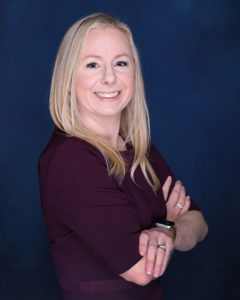Representation Matters: Spotlight on City Councilmember Carolyn Umphrey
 Councilmember Carolyn Umphrey
Councilmember Carolyn Umphrey This is a recurring series highlighting openly nonreligious elected officials across the nation. Prior to the 2016 election there were only 5 public nontheist state legislators, because of the efforts of the Center for Freethought Equality, the political and advocacy arm of the American Humanist Association, we have identified over 60 state and federal legislators today.
It is critical that our community connect and engage with the elected officials who represent our community and our values—you can see a list of these elected officials here.
Councilmember Carolyn Umphrey
Serving Sierra Vista, Arizona
“Not having a belief in a higher power means I’m not praying about the decisions I have to make. Instead, I turn to books, data, our city staff, and the people of Sierra Vista for information and advice.”
Carolyn Umphrey was elected to serve a four-year term on the Sierra Vista City Council in 2018. She’s currently serving as a council liaison for the Upper San Pedro Partnership and the Sierra Vista Metropolitan Planning Organization. Carolyn graduated from the North Jersey School of Dog and Cat Grooming in 2006 just before moving to Arizona, where she opened her own grooming shop in 2009. When her children entered public school, Carolyn became an education advocate, cofounding the Sierra Vista Public Education Network. She is a proud member of the Sierra Vista Area Chamber of Commerce, the Sierra Vista Historical Society, Sierra Vista Symphony Association, 100 Women Who Care–Sierra Vista Communities, and NAMI (National Alliance on Mental Illness) Southeastern Arizona. In her free time, she loves riding her bike and hiking in and around Sierra Vista with her family.
Sarah Levin: What motivated you to run for office?
Councilmember Carolyn Umphrey: My grandfather was Mayor of my mom’s hometown. I was maybe eight or nine when my mom took us with her to knock on doors and hand out literature during his race. I felt a huge sense of pride and excitement the night he won. As an adult, I participated in protests but felt that to make real change I would have to get more involved, which led me to volunteering for the Secular Coalition for Arizona and eventually becoming their secretary. I started to see how much greater an impact state government had in not only my daily life, but in the lives of the people I love.
With two children in the local public school system, I started advocating more locally for our schools, and this got me thinking about running for the school board. Of course, as I made plans for an eventual school board run, I read an article in the local paper calling for City Council candidates, as all but one had dropped from the race before even making it on the ballot. I discussed running with my school advocacy friends, and said I might do it one day when the timing was better. My friend looked at me and said, “Carolyn, just run, there is never going to be a perfect time.” After that conversation, I decided to sleep on it. When I woke up before my alarm clock the next morning because I was so excited to run, I knew that’s what I needed to do.
Levin: What are your policy priorities and how does your nonreligious worldview impact your policy platform?
Umphrey: My priorities on policy boil down to one question: “What’s best for Sierra Vista?” Not having a belief in a higher power means I’m not praying about the decisions I have to make. Instead, I turn to books, data, our city staff, and the people of Sierra Vista for information and advice.
Levin: Why was it important for you to be open about your nonreligious identity?
Umphrey: Years ago, I called my husband my partner in a public setting. Later when we were talking about it he commented that it felt weird. Like many of us, in his background “partner” was only used for same-sex couples, and although he has no problem whatsoever with same-sex couples, and we are partners in our marriage, it just felt strange to him to be introduced that way. Later on, we were reading about the importance of all couples using the word partner more often, as it helps to normalize the term and challenges people to avoid gender role assumptions. I feel like my position on religion is much the same. I do not hide it, I normalize it.
I am known for being non-religious and trying to lower property taxes for our city. I’m known for being non-religious and introducing privatized recycling to our community to reduce costs for the city and continue to give the residents that will actually recycle an affordable and effective option to do it. I’m known for being non-religious and participating in community clean-ups organized by the local churches and neighbors. My hope is that through my reputation, I’m helping normalize non-religious people serving in government by showing that it can be done by anyone with a willingness to serve, regardless of personal religious beliefs or lack thereof.
Levin: How did voters respond (if at all) to your openness about your nonreligious identity?
Umphrey: For the most part I have not received any negative comments directly. Although I have had some political opponents attempt to highlight my atheism, whatever their aim was in doing so fell flat. I had prepared myself to be asked about my lack of belief, but it never came up. Even after knocking on over 1,000 doors, participating in five candidate forums, and attending countless events with my carbon atom tattoo on my wrist, I wasn’t asked about religion. Not even once. The question I did get asked more times than I can remember was “How long have you lived here?”
